“The ultimate guitar processor in terms of tone, dynamics, power, and user-friendliness”: Fender goes toe-to-toe with Neural DSP, Line 6 and Boss with its first-ever amp modeling multi-effects, the Tone Master Pro
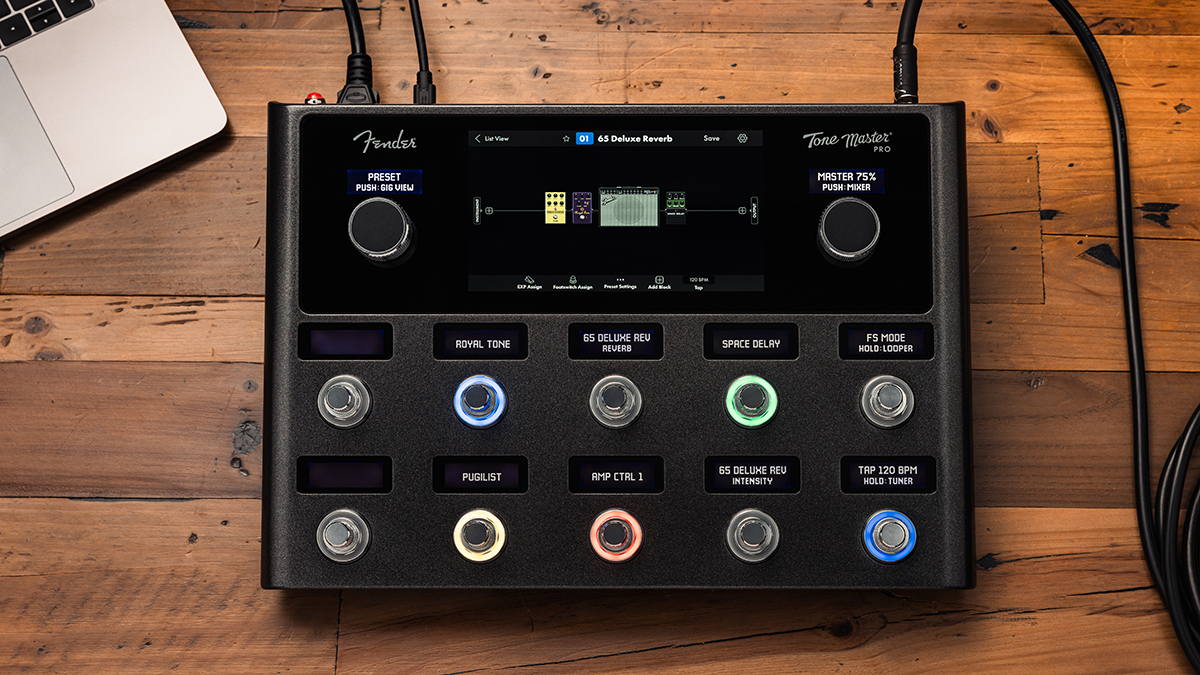
All the latest guitar news, interviews, lessons, reviews, deals and more, direct to your inbox!
You are now subscribed
Your newsletter sign-up was successful
Fender has ushered in a whole new era for its celebrated Tone Master range by unveiling the Tone Master Pro – the brand’s first-ever fully fledged multi-effects and amp modeling floor unit.
It marks a significant advancement and notable step forward for the company, which has slowly been building its Tone Master family of physical digital amps over the past few years while the likes of Neural DSP, Boss and Line 6 continue to push the boundaries of multi-effects technology.
However, despite what may seem like a late start for the Big F in the multi-effects arms race, a quick appraisal of the Tone Master Pro reveals this pedal is in fact the de facto culmination of Fender’s digital amp activities so far.
In other words, Fender means business – and it’s set its sight on overtaking those aforementioned brands in a sprint straight to the top of the amp modeling and multi-effects mountain.
In a bid to make up for lost time, Fender has manufactured what it claims to be “the ultimate guitar processor in terms of tone, dynamics, power, and user-friendliness”, which offers “staggeringly accurate recreations of the worlds most beloved amps”.
Indeed, Fender is certainly no stranger to digitally recreating tube amps with impressive results (that is, after all, the entire objective of the Tone Master range), and so it's no surprise that the Tone Master Pro seemingly excels on the tone front.
In practice, the Tone Master Pro comes loaded with more than 100 amp and effects models (modeled using the Tone Master process), a staggering collection of 6000+ Fender-captured IRs with numerous cab and mic options (as well as third-party IR support), and 10 fully configurable footswitches that can recall effects, amps, presets and more.
All the latest guitar news, interviews, lessons, reviews, deals and more, direct to your inbox!
Notably, one of those amp models is the first-ever fully licensed EVH 5150 III Stealth, which has “been given an official seal of approval by EVH itself”. That in and of itself is significant, especially considering EVH had previously been hesitant to allow its amps to be modeled.
As for utility, those footswitches also serve as rotary parameter controls (just like the Quad Cortex), and work alongside the seven-inch color touchscreen that is at the heart of the pedal. Here, players can browse amps and effects, configure pedal settings and signal chains, and view the 500 User Preset slots that can be crafted, stored and recalled.
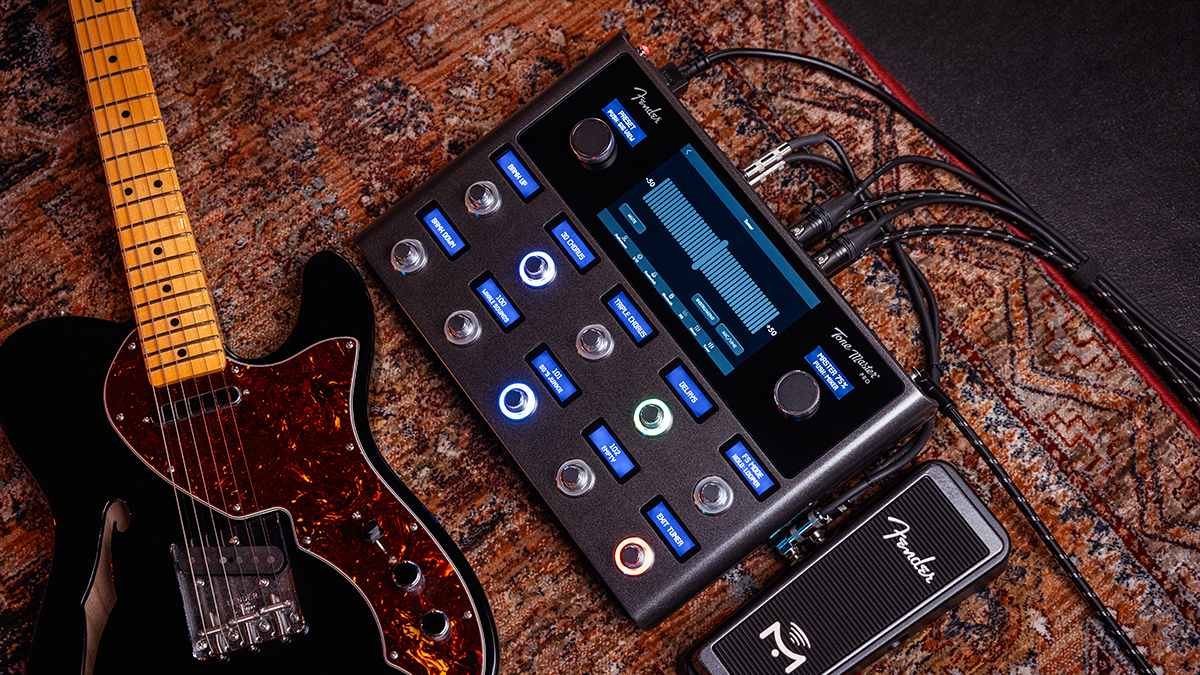
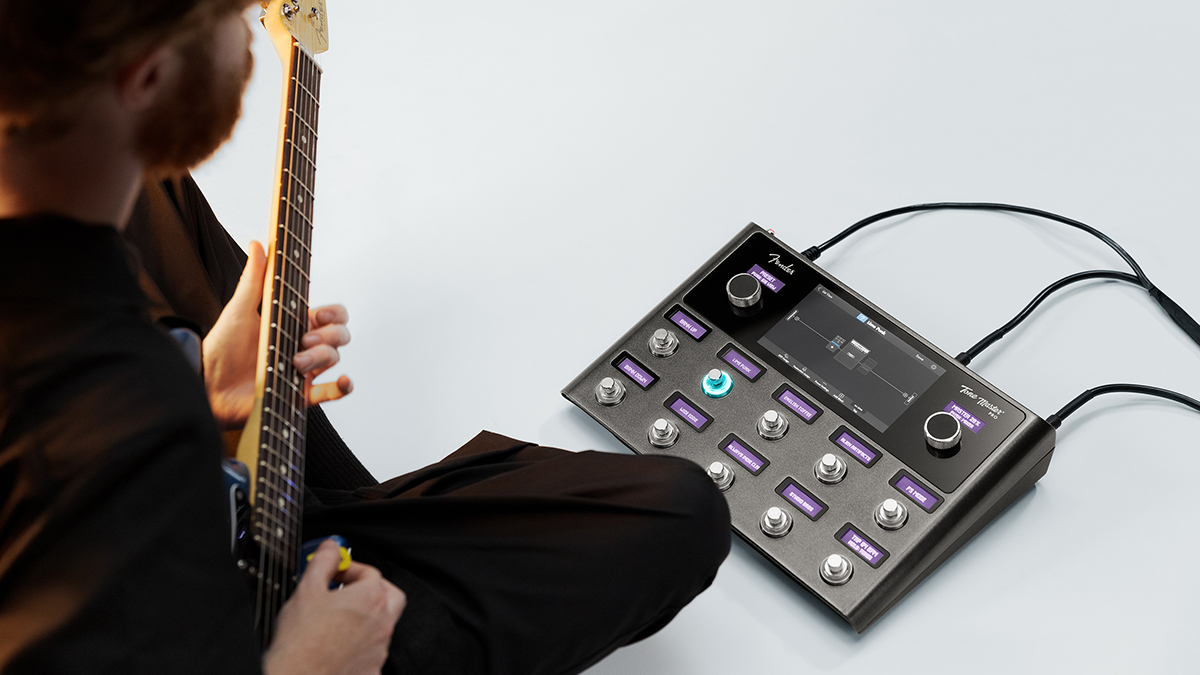
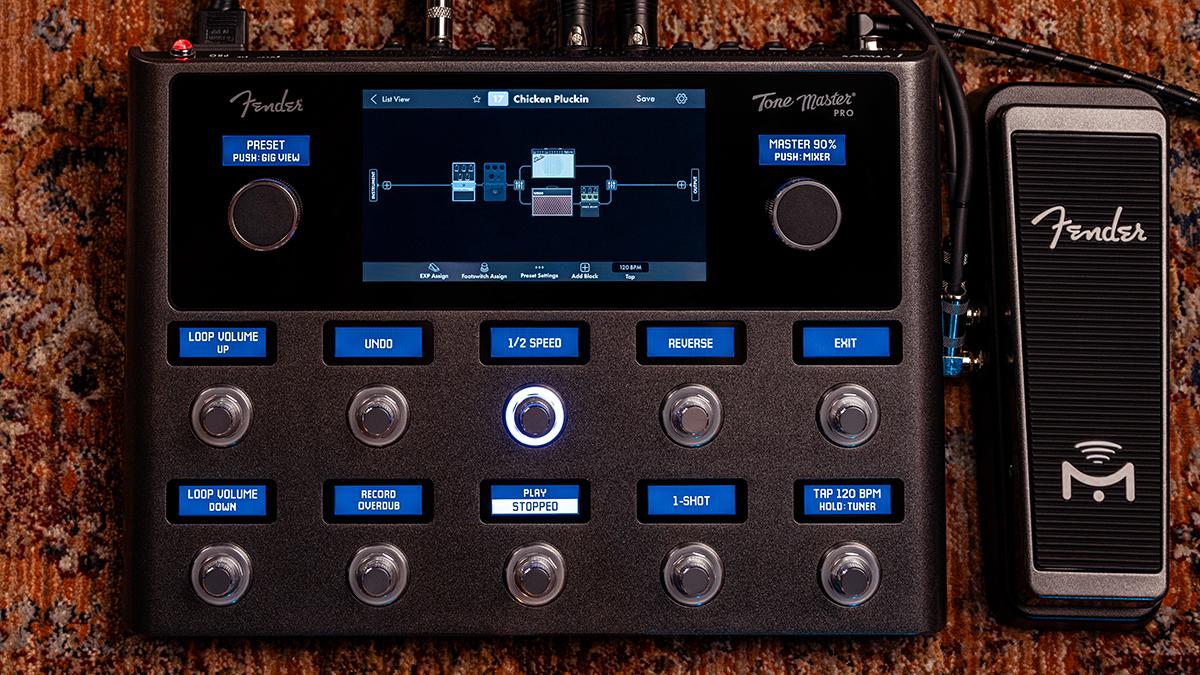
Fender has also installed a 60-second stereo looper and its ‘Song and Setlist’ modes – an intuitive way of organizing and navigating presets for the performing musician that has a loose resemblance to Line 6 units’ Snapshot mode.
In terms of tone and usability, it looks like a bit of a beast, and its versatile suite of connectivity options make it even more alluring as a one-stop performance companion. There are four Effects Loops, two expression pedal jacks, and dedicated inputs for Instrument and Microphone.
What’s more, there’s full MIDI compatibility, Bluetooth connectivity, a headphone output for silent playing, audio interface functionality, an array of other I/Os, and USB for firmware updates and connecting to the dedicated Tone Master Pro Control desktop app for editing, sharing and downloading presets.
What’s powering all of this, you ask? Eight (yes, eight) processors. That’s precisely double the amount of processors used to power the Quad Cortex. Like we said, Fender means business.
“The Fender Tone Master Series is the result of extensive research and development focused on achieving one clear objective: to replicate the world’s most revered amplifiers and effects, integrating all the modern features and functionalities that today’s musicians demand,” said Max Gutnik, SVP of Products at FMIC.
“With renowned sound quality of the Tone Master series, an intuitively powerful interface and a comprehensive set of inputs and outputs, the Tone Master Pro stands out as the ultimate guitar processor in terms of tone, dynamics, power, and user-friendliness.”
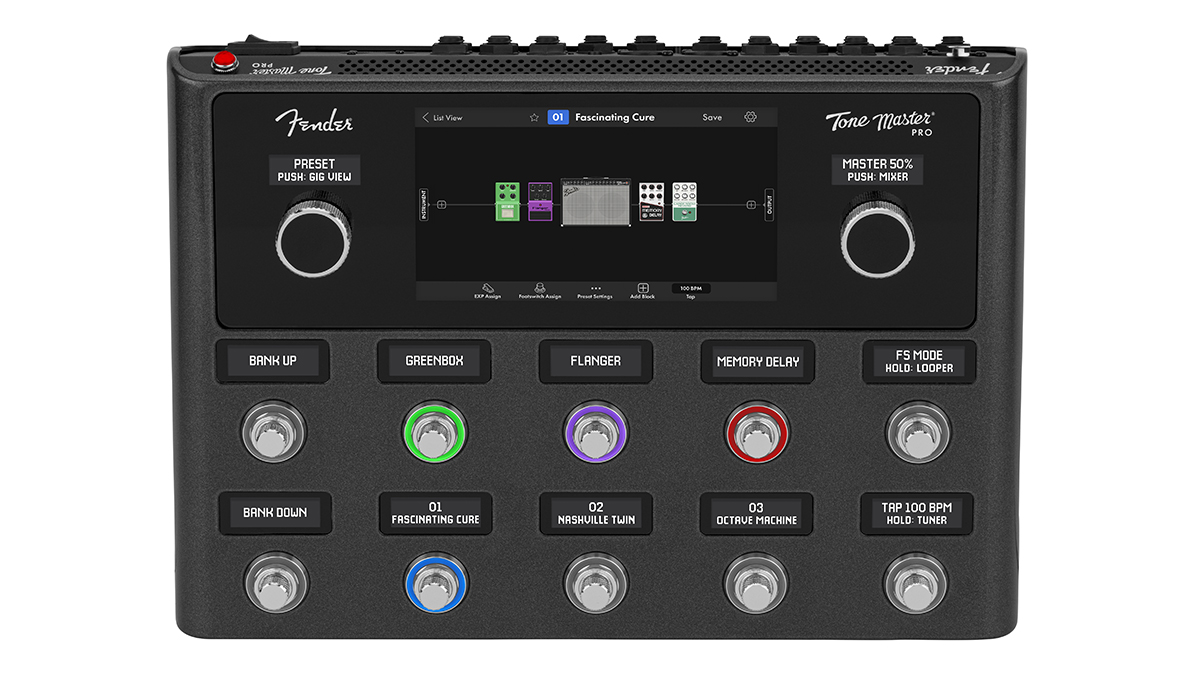
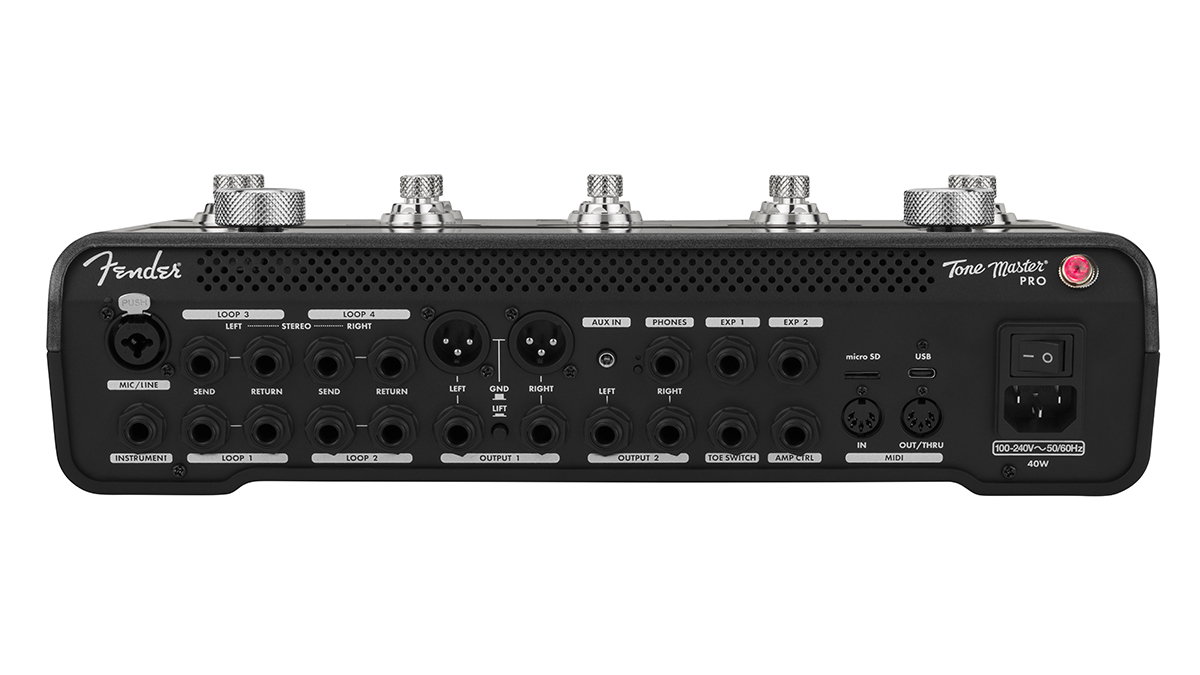
So, how does the Tone Master Pro stack up to the competition, and has Fender done enough to make a significant mark on the market? Well, it’s ridiculously powerful, it looks great, and seems to be an absolute breeze to operate – with some unique features to boot – so there’s no doubt it will woo a large number of guitarists.
Because of its dimensions and functionality, it will be compared closely to the Neural DSP Quad Cortex and Line 6 Helix. In terms of budget, the Tone Master Pro is priced identically – following the Quad Cortex price drop yesterday – at $1,699. Not an insignificant sum by any means, but one justified by the Pro's Tone Master lineage, expanded connectivity and impressive feature set.
There’s no doubt the stack of specs here will tempt players. Perhaps the biggest hurdle Fender will face as it attempts to build its Tone Master Pro player pool, though, is the issue of product loyalty.
Will a Quad Cortex player jump ship to the Tone Master Pro? Well, those four extra processors might be tempting, but it remains to be seen.
The Tone Master Pro is available now for $1,699, and has been launched alongside Fender's first Tone Master FRFR cabs – the FR-10 ($499) and FR-12 ($549).
To find out more, head over to Fender.

Matt is the GuitarWorld.com News Editor, and has been writing and editing for the site for five years. He has a Masters in the guitar, a degree in history, and has spent the last 19 years playing everything from blues and jazz to indie and pop. During his GW career, he’s interviewed Peter Frampton, Zakk Wylde, Tosin Abasi, Matteo Mancuso and more, and has profiled the CEOs of Guitar Center and Fender.
When he’s not combining his passion for writing and music during his day job, Matt performs with indie rock duo Esme Emerson, and has previously opened for the likes of Ed Sheeran, Keane, Japanese House and Good Neighbours.


